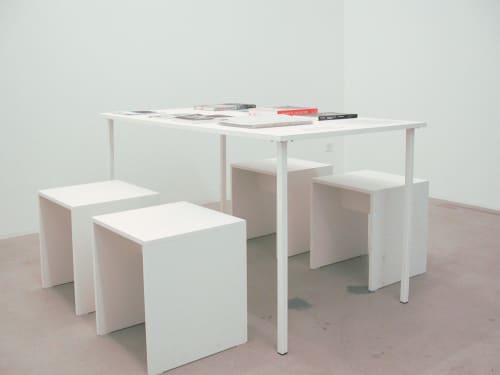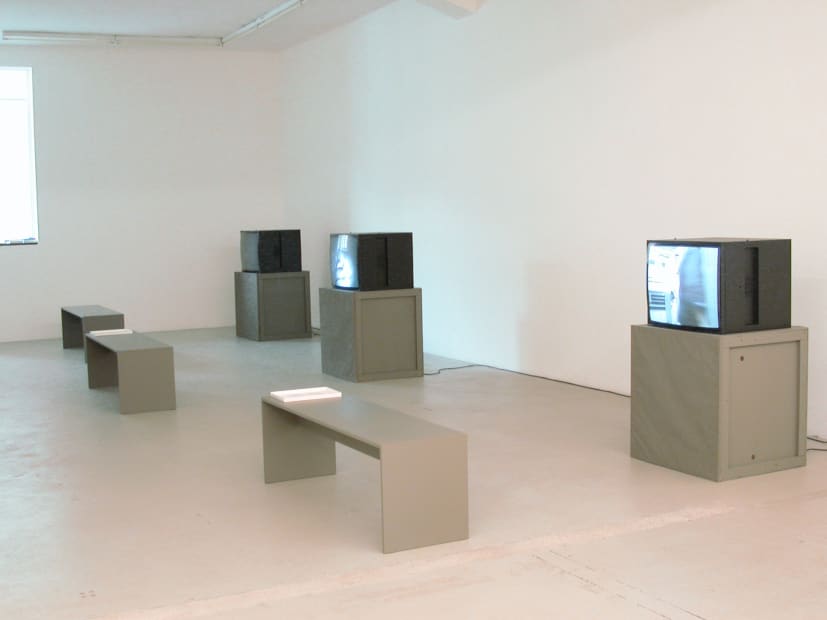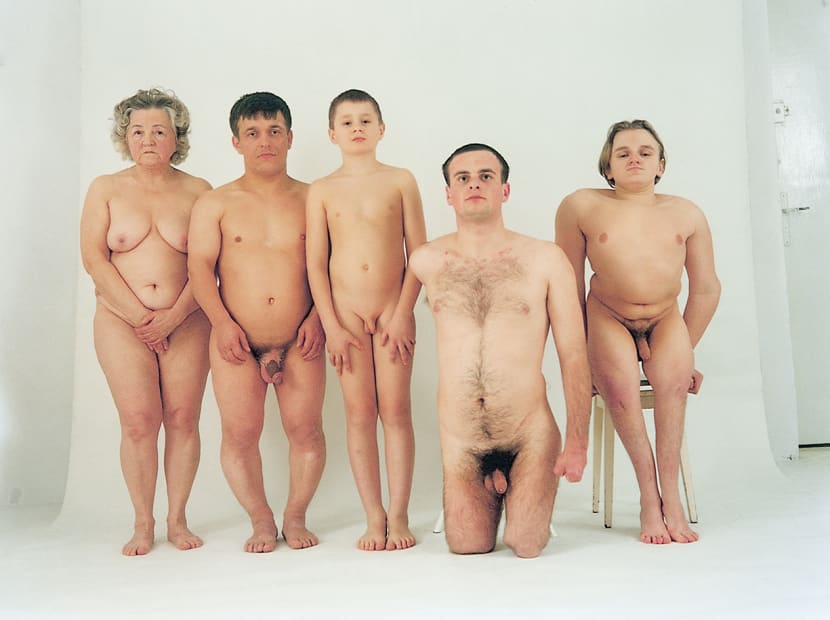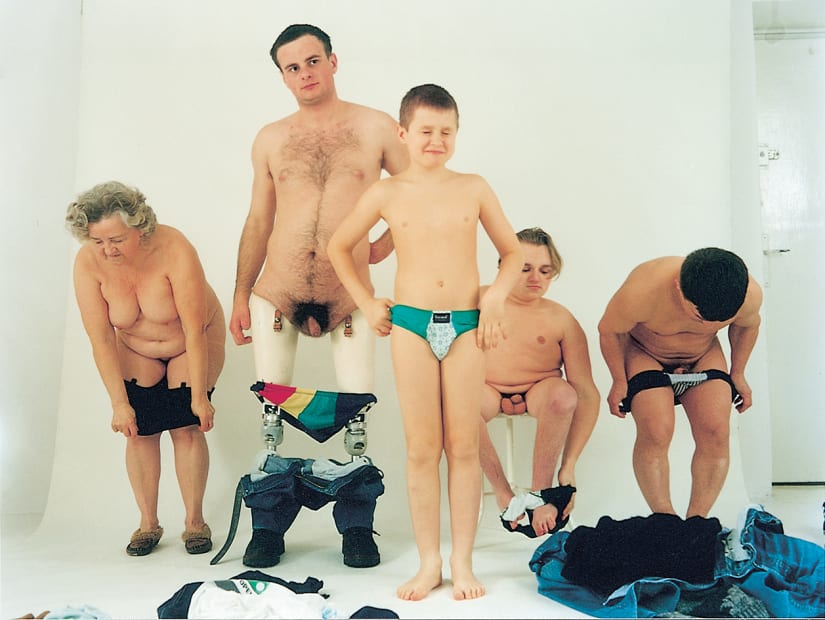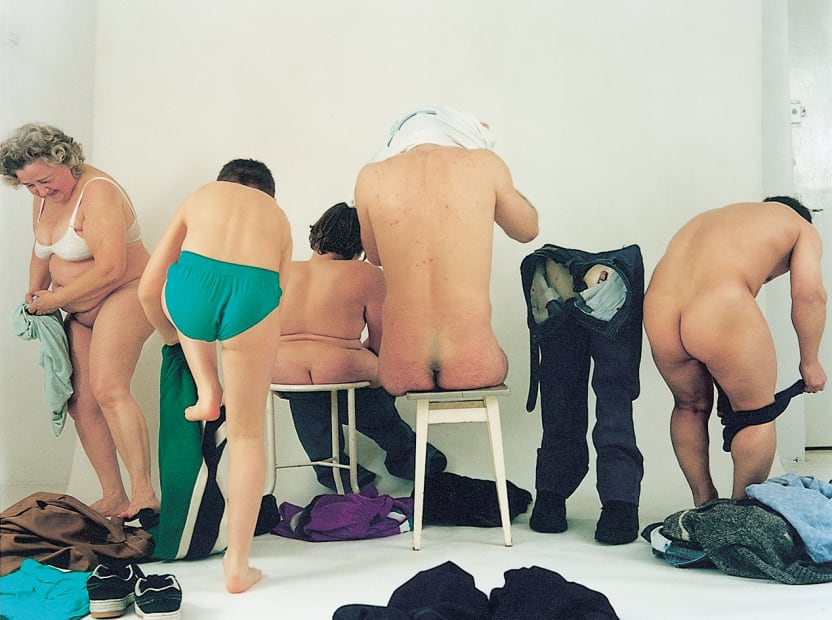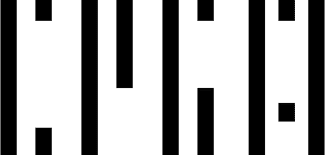Artur Zmijewski: Galerie Peter Kilchmann, Limmatstrasse, Zurich
The Peter Kilchmann Gallery is pleased to announce an exhibition of new works by the Polish artist Artur Żmijewski (born 1966 in Warsaw, lives and works there). The exhibition presents a new three-part video work. For his new film project Artur Żmijewski was looking for three different employed persons whom he found via an advertisement in a local newspaper. He received their agreement for filming each of them for 24 hours. The leading characters are a laundress, a woman who works on the assembly line in a factory and a female cashier who works in a supermarket in Warsaw. Żmijewski interviewed each protagonist in advance, in order to briefly get to know the personal and vocational surroundings.
The artist then shortened each 24-hour film into a 5-minute sequence. The result is the subjective attempt of a cinematic essence about the organization of everyday life. By means of the apparently objective camera eye the artist has caught banal and repeated activities like getting up, working, family work, eating and sleeping. The onlooker is to question the analogies and deviations between the various progressions of everyday life. Strictly speaking, the regularity of our everyday life can be disturbed by unforeseen events and suddenly change.
"Everyday life ≠ Holiday [...], everyday life = routine [...] everyday life = working day [...] everyday life = life of the mass of the peoples [...] everyday life = event range of the daily life [...] everyday life = private life (family, love, children) [...] everyday life = sphere of the natural, spontaneous, unreflected and true experiencing and thinking [...] everyday life (everyday life consciousness) = epitome of ideological, naive, not well thought through and wrong experiencing and thinking [... ] the list is everything not but complete." (Elias 1978, S. 26)1. Which meaning do 24 hours have in the life of a human being? Usually, everyday life is shaped by repetitive samples such as work, consumption (purchase and food), family, leisure and sleep, the progressions of which can be easily foreseen. In this context, the artist examines individual rituals, repetitions, orders, and automatisms. Beyond other things the artistʼs video work focuses on the uncovering/indicating of the unconsciously steered everyday life action, which can be understood as a social interaction moment, because the human being is always located into a social and cultural context.
Thematically, the artist concerns himself with the mode of presentation of deviating physicality (physical/psychological), shows an interest in the narration of subjective life reality, the visualization of human emotions such as shame and vulnerability and tests the excess of the individual privacy again and again. With its cinematic and photographic work, Żmijewksi locates himself between documentary film and narration, between report and fiction. He is a reserved observer, who describes human behaviour under psychological and sociological aspects. Advertisements in newspapers frequently serve the artist as an aid to find his protagonists. He observes them for his films, confronts them with an arranged situation, and thus provokes them. On the one hand, the artist functions, as a sociological catalyst of social snap shots and on the other hand the documentary film appears likes an apparently objective authority.
